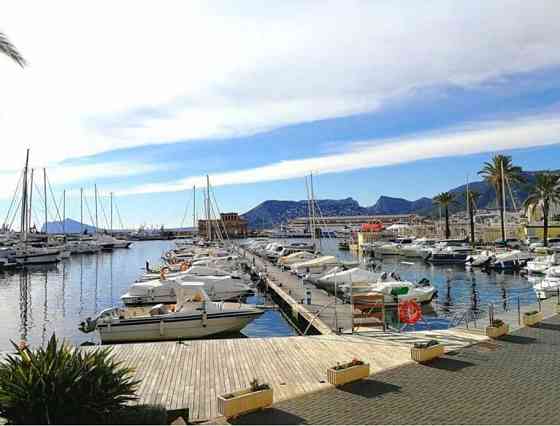
New restrictions for foreign property buyers in Spain — what you need to know
In recent years, the cost of residential property in Spain has increased significantly. Over the past five years alone, prices have risen by 27%, and rental rates have broken records. The greatest increase in property prices has been in resort areas and large cities in Spain. In 2022 alone, the cost of housing increased: in the Balearic Islands — by 14.7%, in Malaga — by 13.9%, in Alicante — by 12.5%, in Madrid — by 10.3%, in Barcelona — by 9.7%. At the same time, the average cost per square meter in new buildings throughout the country reached 2,472 euros, and on the secondary market — 1,995 euros. Particularly strong growth was observed in regions popular with foreign investors — the Balearic and Canary Islands, Valencia and Catalonia. Because of this, housing is becoming less and less affordable for the Spaniards themselves.
Discontent is brewing in society, people are demanding decisive action from the authorities. And the government is ready to take them, limiting the inflow of foreign money into the real estate sector. The country's authorities are seriously concerned about the problem of housing affordability for the local population and have decided to limit the opportunities for foreign buyers, primarily from countries outside the European Union. Prime Minister Pedro Sanchez has already announced a set of measures designed to cool the ardor of foreign investors:
- Non-residents from countries outside the European Union will have their taxes significantly increased — up to 100% of the cost of the purchased property.
- Foreigners may be prohibited from buying real estate without living in Spain for a certain period (the so-called residency requirement).
- From 2025, the popular «golden visa» program, which allowed people to obtain a residence permit for investments in real estate from 500,000 euros, will be canceled. The authorities considered that it only contributed to speculation and price increases.
How the changes will affect the market
- According to the Central Bank of Spain, in 2022 alone, non-residents invested 9.24 billion euros in local real estate. This is 41% more than the year before. At the same time, the main inflow of funds was provided by buyers from countries outside the European Union: Great Britain — 1.06 billion euros, the USA — 886 million euros, China — 476 million euros, Norway — 402 million euros, Russia — 344 million euros. In total, non-residents accounted for almost 13% of all housing transactions in Spain last year. The consequences of the changes being introduced may be a decrease in the inflow of foreign investment into Spanish real estate. And this, in turn, will negatively affect the construction sector and related industries. On the other hand, the Spaniards themselves will have more opportunities to purchase their own housing, which should reduce social tensions.
- Experts disagree in their assessments of the consequences of the upcoming reform. On the one hand, owners of already purchased real estate will not suffer — their transactions will be recognized as legitimate. But there will be much fewer new foreign buyers due to the increase in taxes and the need to confirm their residence in the country. Representatives of the Spanish real estate market have different opinions on the government's initiative. Here is what experts say:
- «The market is expecting some turbulence, but there is no need to panic. Spain has huge potential, so we will quickly adapt to the new reality. Yes, there will be less foreign money, but domestic demand will grow.» (Manuel Garcia, head of a real estate agency)
- «A sharp collapse in prices is unlikely. The economy is on the rise, mortgages are cheap, unemployment is declining. This means that local residents will have more opportunities to buy housing, which will support the market.» (Ana Torres, independent real estate analyst)
- «New restrictions for foreigners may provoke a temporary drop in prices by 10-15%. But overall, the market will remain stable, since Spain has been and remains one of the most attractive countries for buying housing in Europe.» (Javier Martinez, President of the National Federation of Real Estate Associations)
Most experts agree that Spanish real estate will adapt to the changes and will retain its investment appeal. However, a short-term decline in prices and activity of foreign buyers is quite likely.
To sum up, it should be noted that Spain has decided to take a serious step – to limit non-residents’ access to the housing market. This is dictated by the desire to make real estate more accessible to the local population against the backdrop of rapidly rising prices. Time will tell how effective the proposed measures will be. But it is already obvious that they will significantly complicate the lives of foreign investors, especially from countries outside the European Union. Higher taxes, residency requirements, and the abolition of “golden visas” will all reduce the attractiveness of the Spanish market in their eyes. At the same time, the Spaniards themselves will have more chances to acquire their own housing. This means that the social climate may improve and the well-being of the population may increase.
Whatever the outcome of the reform, one thing is certain – the Spanish property market is in for some big changes. Both locals and foreign investors considering Spain as a home buyer need to be prepared. Stay tuned to stay up to date with the latest developments in the Spanish property market and make informed decisions about your home purchase.
 Real Estate in Spain
Real Estate in Spain
Install our app and get all the tools you need to search for real estate abroad in your smartphone! The mobile application will allow you to quickly access your personal account, manage your favorite properties and track your requests, directly exchange messages with sellers and buyers.


Northern Spain is gaining popularity among foreign property buyers due to its picturesque nature, mild climate, affordable prices and authentic atmosphere. We find out how the north differs from the traditional southern regions and why more and more foreigners are choosing Galicia, Asturias, Cantabria and the Basque Country to buy a home.

Spain continues to hold a leading position in the overseas property market, attracting investors from all over the world with record demand, steady growth and unique opportunities for income and residence. The material contains all about the main trends, current figures, new opportunities and difficulties for foreign buyers.

The Spanish real estate market continues to grow rapidly, especially in the new-build segment. Madrid, Malaga and Valencia are leading in terms of construction volumes, but housing prices are becoming less and less affordable for the majority of the population. Let's look at the reasons for this phenomenon and the prospects for investors and buyers.








 42
42  1
1  1
1  3
3 




















